Montessori
pedagogy
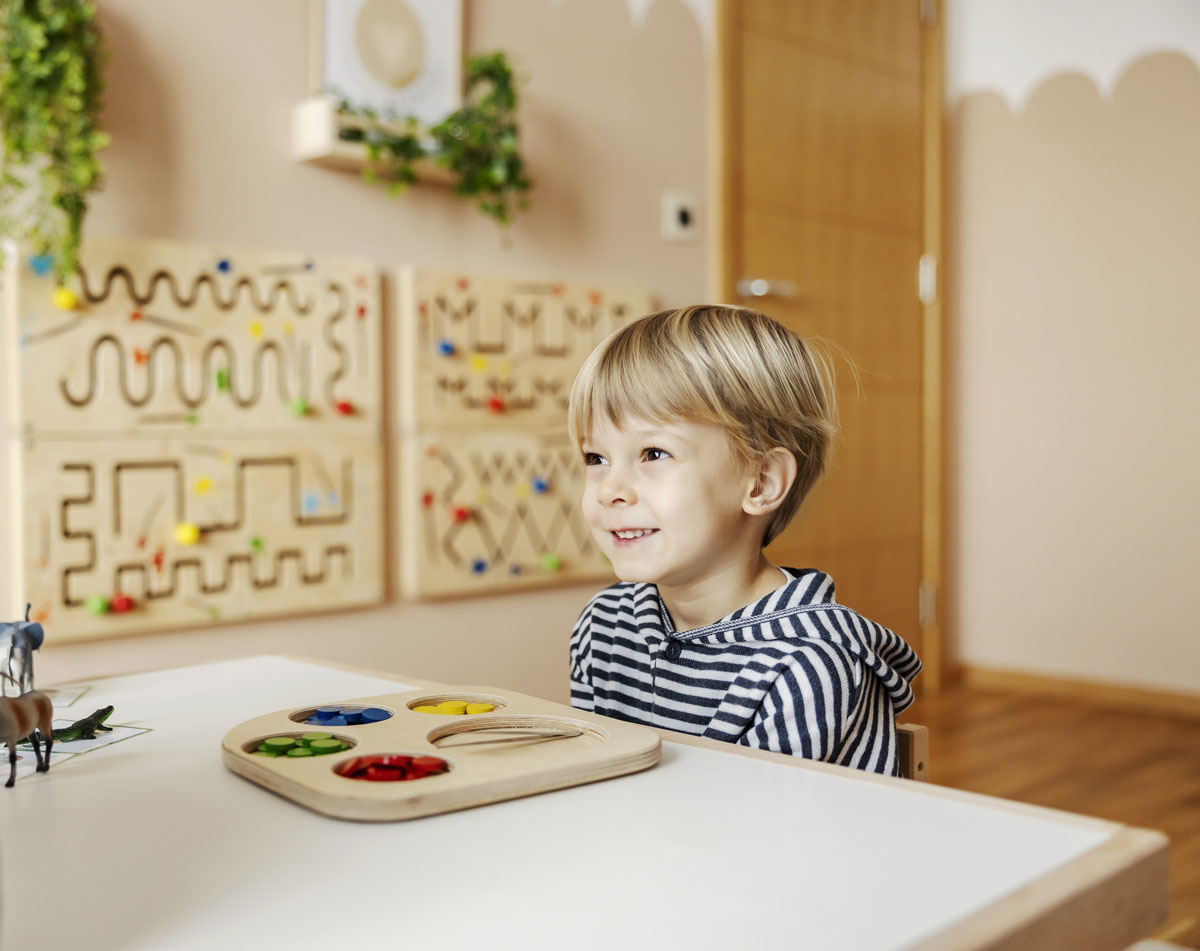
Who developed Montessori pedagogy?
The Italian doctor Maria Montessori began to develop her educational philosophy in a preschool institution in Rome in 1907. After the publication of her book The Montessori Method in 1909, her pedagogy became a phenomenon that spread throughout Europe and the rest of the world. Today, "Montessori" is a philosophy behind more than 100 years of research, development, and concrete results.
Learning life and academic skills
A Montessori education fosters independence, self-esteem, social awareness, empathy, resilience, problem-solving, and creative thinking—characteristics that will serve students well beyond school. Google founders Larry Page and Sergey Brin attributed their success to their Montessori education: "It was training to disobey rules and orders and be self-motivated and question what's going on in the world and do things a little differently," Page said.
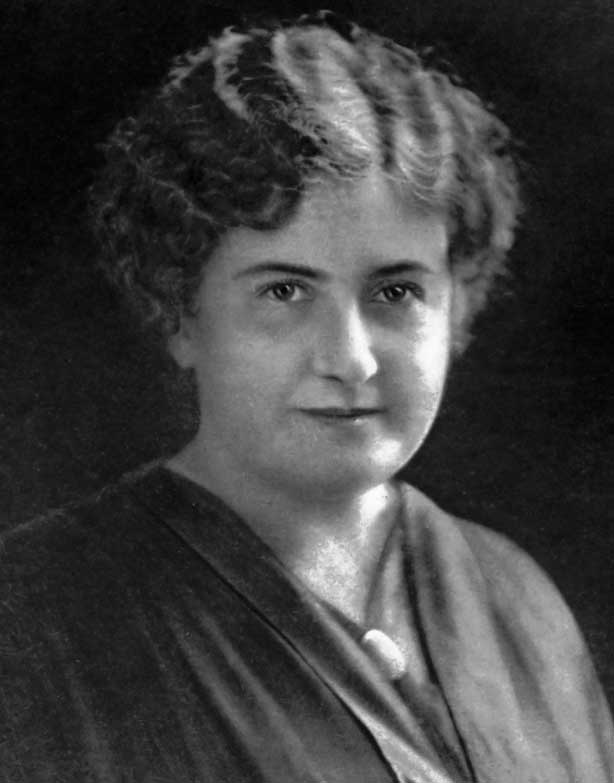
What distinguishes Montessori from other methods?
Montessori materials
Wherever you are in the world, you can recognise a Montessori classroom. This is because Maria Montessori designed special materials emphasising hands-on learning in different subjects. Montessori didactic materials allow your child to learn and understand abstract concepts in a fun way.
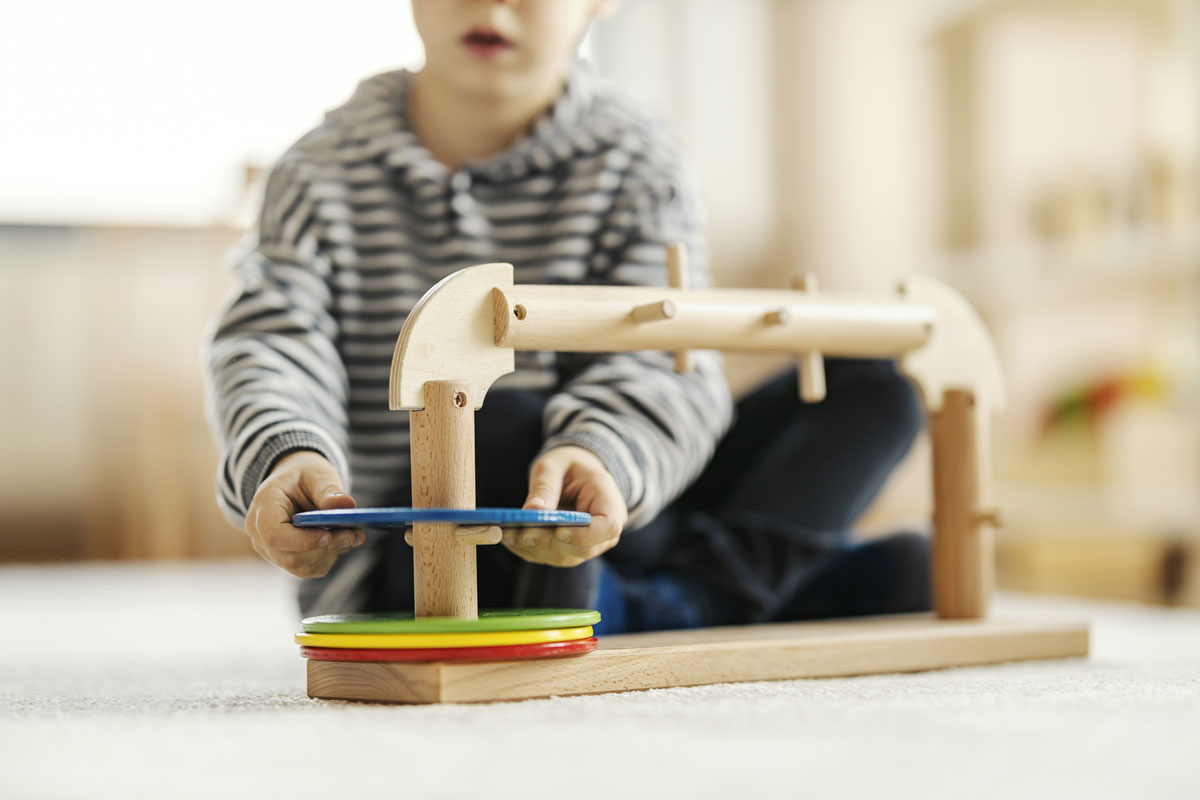
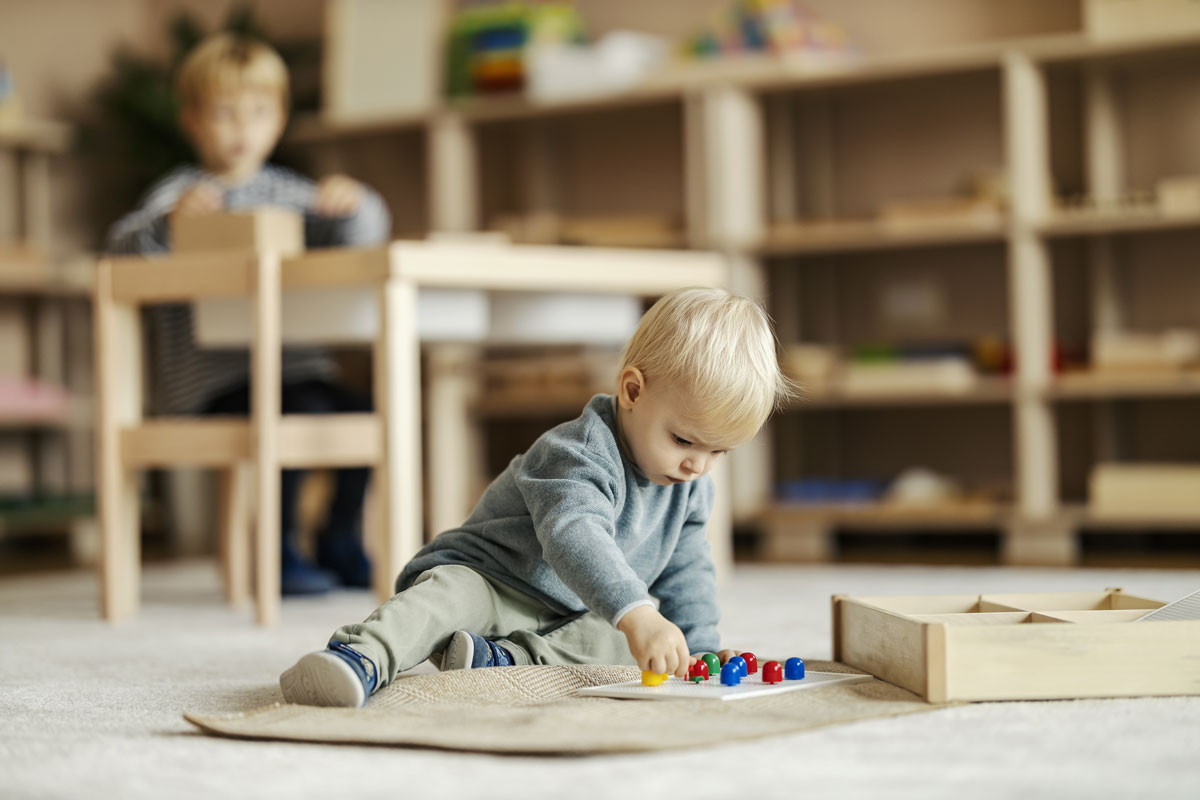
Developing independence
The Montessori classroom is built to encourage independence in children. Students return the work to the shelves, make snacks, and wash the dishes. In preschool, students prepare food and take care of the classroom's physical environment. At meetings, they learn to reach a consensus on decisions for the community with a sense of justice and empathy.
Mixed age environment
A mixed group of children achieves a social environment representing a realistic picture of the child's social aspect. This group gives the child the opportunity to gain social experience. Younger children learn from older ones and develop curiosity and a desire to follow in their footsteps. Older students gain a clear sense of progress, become leaders in the classroom, and reinforce their lessons.
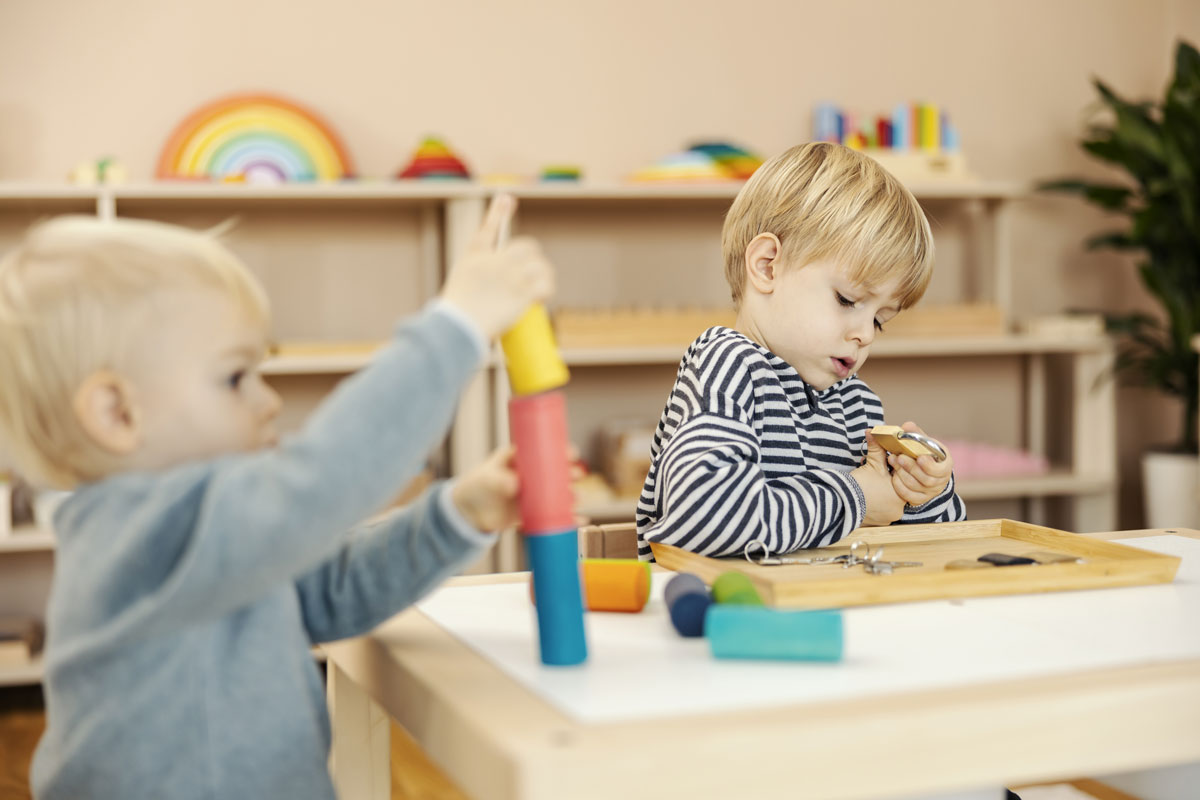
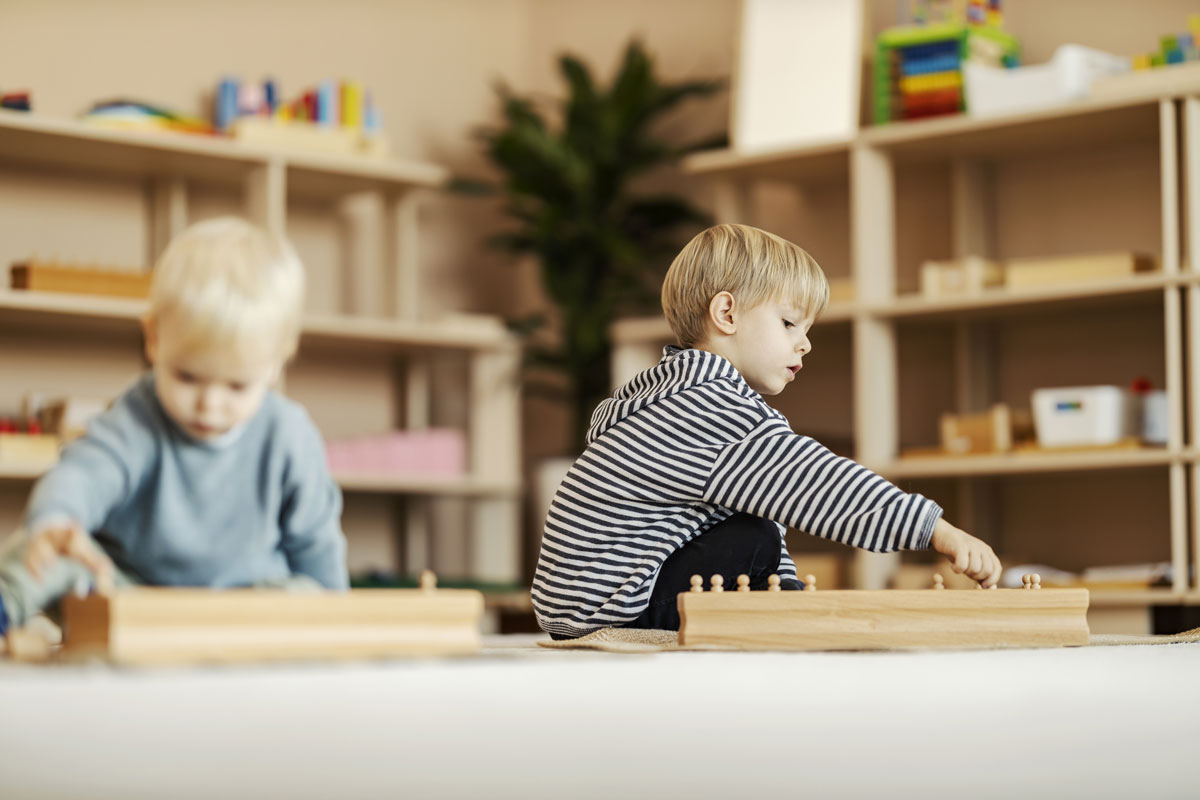
Individualised learning
Children can follow their curiosity and explore their favourite subjects and interests more deeply, choosing tasks set in the environment. But while students may gravitate toward certain areas, their teachers monitor progress across all areas and topics. Older students learn how to use daily, weekly, and monthly planners to track their progress toward mastering concepts and completing projects.
Prepared environment
The Montessori classroom is a thoughtfully constructed and designed space to meet the class's daily needs. A stimulating environment with simple rules allows the child freedom of choice within clearly set limits. This kind of environment aims to stimulate the child in order to use his full potential.
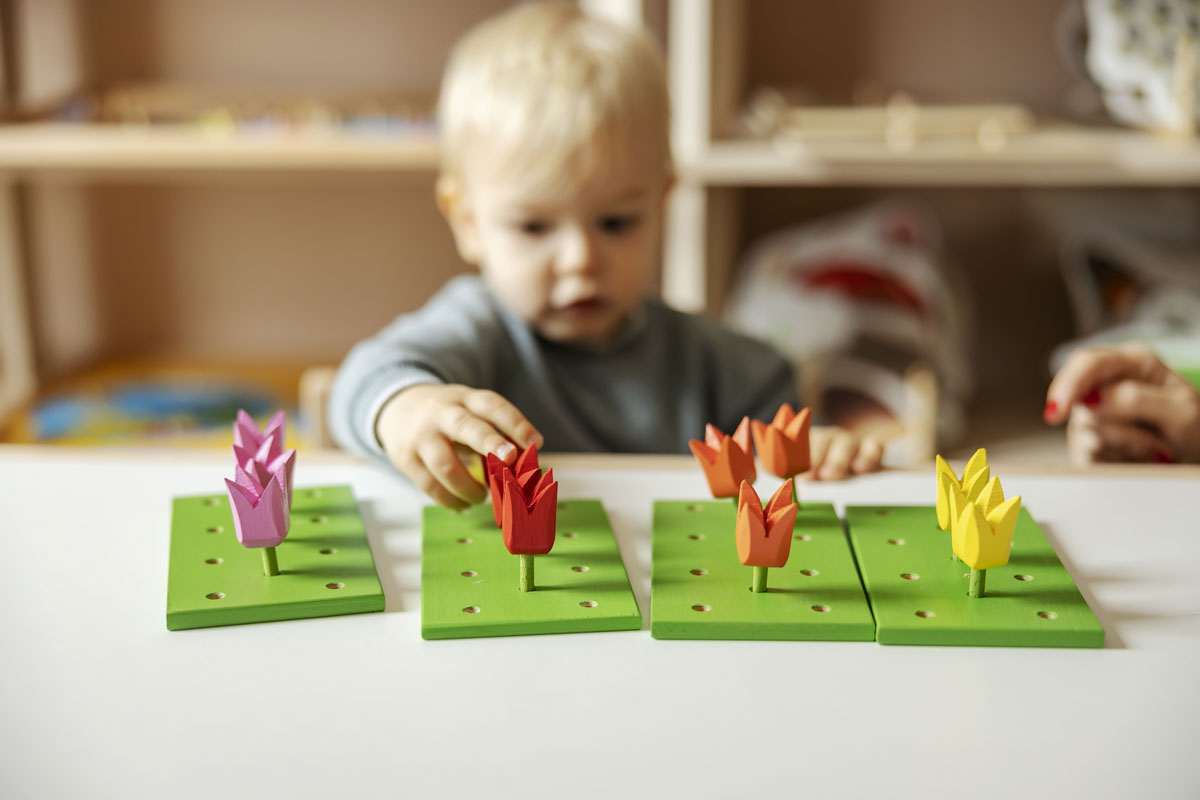
Enable your child to reach its full potential!